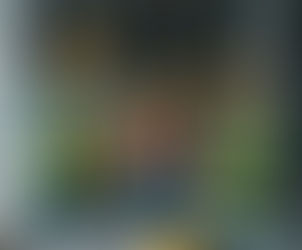How is AI changing the way we perceive Art?
- Tretyak

- Mar 18, 2024
- 3 min read
Updated: Mar 2
AI and Art: A New Renaissance?
Artificial Intelligence (AI) is no longer a distant dream, but a powerful reality that is rapidly transforming the art world. From generating novel artistic expressions to providing artists with unprecedented creative tools, AI is challenging our very definition of art and the role of the human creator. This exploration delves deeper into the multifaceted impact of AI on the art world, examining its transformative potential, ethical considerations, and the profound questions it raises about the nature of creativity itself.
1. AI as an Artistic Catalyst:
Unleashing New Creative Frontiers
AI is not merely a tool; it is a collaborator, a catalyst for artistic innovation. AI algorithms, trained on vast datasets of art, can now generate original artworks, compose music, and even write poetry. This opens up new avenues of artistic expression, allowing artists to explore uncharted territories and create works that were previously unimaginable.
AI as a Source of Inspiration: AI algorithms can generate a wide range of artistic styles, from abstract and surreal to photorealistic and impressionistic. These AI-generated outputs can serve as a source of inspiration for human artists, sparking new ideas and pushing creative boundaries.
AI as a Creative Partner: Artists can collaborate with AI algorithms, using them as a tool to enhance their own creative process. For example, an artist can use AI to generate variations on a theme, explore different color palettes, or create unique textures, seamlessly integrating AI-generated elements into their own artistic vision.
AI as a Tool for Personalization: AI can be used to personalize the art experience for individual viewers. For instance, AI algorithms can analyze a viewer's preferences and generate customized art recommendations, creating a more personalized and engaging art experience.
2. The Ethical Landscape of AI in Art:
The rise of AI in the art world also raises important ethical considerations:
Authorship and Ownership: Who owns the copyright to AI-generated art? Is it the artist who programmed the AI, the AI itself, or the user who provided the input? These questions are complex and require careful consideration.
Authenticity and Originality: As AI becomes increasingly sophisticated, it raises questions about the authenticity and originality of art. What constitutes a truly original artwork when AI can generate seemingly endless variations?
The Role of Human Creativity: Some argue that AI-generated art lacks the human touch, the emotional depth, and the unique perspective that makes human art truly special. Others argue that AI can be a powerful tool for augmenting human creativity, not replacing it.
3. AI and the Future of Art:
The future of art in the age of AI is uncertain, but one thing is certain: it will be profoundly different from the art of the past. AI has the potential to democratize art, making it more accessible to a wider audience. It can also lead to new forms of artistic expression, blurring the lines between art, technology, and human creativity.
4. Embracing the AI-Powered Art Renaissance:
The key to navigating this new era of AI-powered art lies in embracing the potential of AI while also acknowledging its limitations. Artists, art critics, and the public need to engage in open dialogue about the ethical and societal implications of AI in the art world. By fostering a collaborative and inclusive approach, we can ensure that AI serves as a catalyst for artistic innovation and enriches the human experience.
Conclusion:
AI is not just changing the way we create art; it is fundamentally redefining our understanding of art itself. By embracing the potential of AI while addressing the ethical challenges, we can usher in a new era of artistic expression, where human creativity and technological innovation converge to create a more vibrant and dynamic Art World.


































































































































Thanks on Ewgenia (❤️)....
AI is such a fascinating tool for reimagining art! It makes me wonder how artists can collaborate with AI to create truly unique pieces. Does AI open new forms of expression, or will it eventually replace traditional art entirely? I'm excited to see where the boundaries get pushed.